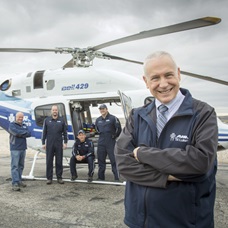-
Call Us
-
Baker City (541) 523-1001
-
Boise (208) 381-2222
-
Buhl (208) 814-1000
-
Caldwell (208) 381-2222
-
Eagle (208) 473-3000
-
Fruitland (208) 381-2222
-
Hailey/Ketchum (208) 727-8800
-
Jerome (208) 814-9500
-
McCall (208) 634-2221
-
Meridian (208) 706-5000Nearest Location
-
Mountain Home (208) 587-8401
-
Nampa (208) 381-2222
-
New Meadows (208) 634-2221
-
Ontario (208) 381-2222
-
Riggins (208) 634-2221
-
Sun Valley (208) 727-8800
-
Twin Falls (208) 814-1000
-
-
Health Services
-
Communities & Locations
Site Navigation
Supplemental
- About St. Luke’s
- Donate or Volunteer
- Blogs
- For Providers
- En Español
- Contact Us In Meridian (208) 706-5000
Menu
-
Health Services
Health Services Menu
Medical Services
Specialties, Conditions, Procedures & Treatments
Search by keyword or browse our list of services.
Providers
Find a provider by specialty, location, or availability.
On-Demand Virtual Care
Available seven days a week from 8 a.m. to 8 p.m.
Research Studies & Clinical Trials
See current studies testing new drugs, devices, and equipment to find better ways to treat and help patients.
Health Information
Health Activities
Life Events
-
Communities & Locations
Communities & Locations Menu
Facilities
Emergency & Urgent Care
For life-threatening medical emergencies, call 911 without delay. For a mental health crisis, call or text 988 for free and confidential crisis support.
Clinics
Search by specialty and location.
Hospitals & Medical Centers
Receive the highest level of care from the region's leading providers.
Labs & Imaging Centers
Find a lab or imaging facility close to you.
Pharmacies
Search for a retail pharmacy in your area.
Infusion Centers
Find an outpatient infusion center.
Business Services
Visit us to pay bills, ask billing questions, or request billing records.
Nearest You
-
Resources For Patients & Visitors
Resources For Patients & Visitors Menu
After Your Visit
-
 MyChart
MyChart
-
Search
Search Menu
- Karen Kozlowski on Collaboration
Dr. Pate’s Prescription for Change
St. Luke’s Patient Karen Kozlowski on Collaboration
You are about to watch the first of a seven-part video series in which I interview one of our patients. This is no ordinary patient. She is also a nurse, and she has a terminal illness. She provides a unique view into our healthcare delivery system, at St. Luke’s and at other institutions where she has received care over most of her adult life.
At St. Luke’s, we are driving toward patient-centered care. Perhaps most of those reading this will say, “We (wherever you work) already provide patient-centered care.”
I don’t doubt that there are aspects of the care that are patient-centered, but I wonder whether after watching the seven video clips, you will say, “We provide patient-centered care, all the time, for everyone.”
Here is the model of patient-centeredness we have developed at St. Luke’s to help us understand all the aspects to patient-centered care:

We developed this based on patient feedback, patient surveys, input from patient and family representatives on our quality and safety committees and based on our own experiences.
Patient-centeredness is multifaceted. It involves all of the experiences and interactions a patient has with our health system and the many different administrative and clinical personnel.
As you watch this video and those that follow, I’d invite you to consider the patient-centeredness diagram and see how many elements of patient-centeredness this patient brings up. It’s a conversation worth having.
About The Author

David C. Pate, M.D., J.D., previously served as president and CEO of St. Luke's Health System, based in Boise, Idaho. Dr. Pate joined the System in 2009 and retired in 2020. He received his medical degree from Baylor College of Medicine in Houston and his law degree from the University of Houston Law Center.
Dr. Pate’s Prescription for Change

Related Blog Post

Next Post in Series

Your Partner in Health.
People are at the heart of great health care. That's why we are committed to delivering compassionate, high-quality care tailored to the communities we serve.
Together with our community partners and patients, we're building a stronger, healthier future for all Idahoans.
